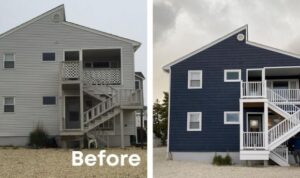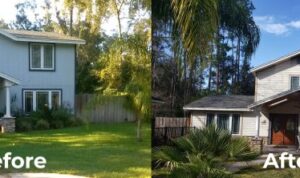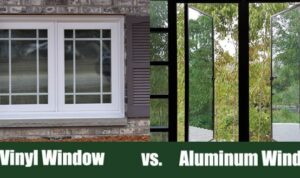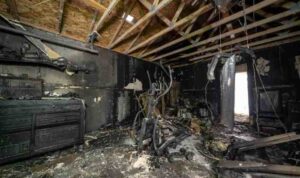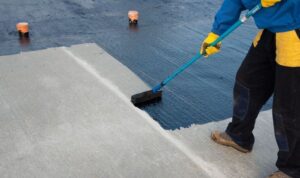Delving into the realm of property management for homeowners associations, this introduction aims to provide a comprehensive look at the crucial role it plays in maintaining thriving communities.
Exploring the various aspects of property management, from financial oversight to maintenance coordination, this overview sets the stage for a deeper understanding of the subject.
Overview of Property Management for Homeowners Associations
Property management for homeowners associations involves the management and maintenance of shared community properties, amenities, and common areas within a residential development. It plays a crucial role in upholding community standards, ensuring property values are maintained, and enhancing the overall quality of life for residents.
Importance of Property Management
Property management is essential for maintaining the aesthetics, functionality, and safety of common areas within a homeowners association. By enforcing rules and regulations, addressing maintenance issues promptly, and overseeing financial matters, property management helps create a harmonious living environment for residents.
Responsibilities of a Property Management Company
- Enforcing community rules and regulations to uphold property values and maintain a desirable living environment.
- Handling maintenance and repairs for common areas, such as landscaping, pool maintenance, and building upkeep.
- Managing financial aspects, including collecting dues, creating budgets, and handling accounts payable/receivable.
- Organizing community events and fostering a sense of community among residents.
- Providing customer service and addressing resident concerns in a timely and professional manner.
Benefits of Professional Property Management

Professional property management can provide numerous advantages for homeowners associations, ultimately leading to a more efficient and valuable community.
Enhanced Property Values
One of the key benefits of hiring a property management company is the potential to enhance property values within the community. By ensuring proper maintenance, timely repairs, and effective financial management, professional property managers can help maintain and even increase property values over time.
Streamlined Operations
Professional property management can streamline operations for homeowners associations in various ways. This includes handling day-to-day tasks such as maintenance requests, vendor management, financial reporting, and compliance with regulations. By taking on these responsibilities, property managers free up the time and energy of board members and residents, allowing for a smoother and more efficient operation of the community.
Common Challenges Faced by Homeowners Associations
Homeowners associations often encounter various challenges when managing properties. These challenges can range from financial issues to conflict resolution among residents. Property management companies play a crucial role in helping address these challenges effectively by providing expertise, guidance, and support to the HOA board.
Financial Management Challenges
One common challenge faced by homeowners associations is maintaining financial stability. Property management companies can assist by creating and managing budgets, collecting dues, and providing financial reports to ensure transparency and accountability.
Maintenance and Repairs
Another challenge is maintaining the property and addressing repair needs promptly. Property management companies have a network of trusted vendors and contractors to ensure that maintenance issues are resolved in a timely and cost-effective manner, preserving property value and resident satisfaction.
Compliance with Regulations
Ensuring compliance with local regulations and HOA governing documents can be a complex challenge for homeowners associations. Property management companies stay up-to-date on laws and regulations, helping HOAs avoid potential legal issues and penalties.
Community Conflict Resolution
Resolving conflicts among residents or between the board and homeowners is a common challenge for HOAs. Property management companies can act as mediators, facilitating communication and finding amicable solutions to disputes, fostering a harmonious community environment.
Financial Management in Homeowners Associations

Managing the finances of a homeowners association is crucial for the smooth operation and maintenance of the property. It involves budgeting, collecting dues, and providing financial reports to the members.
Role of Property Management Companies in Financial Oversight
Property management companies play a vital role in overseeing the financial aspects of homeowners associations. They are responsible for creating budgets, collecting dues, paying bills, and providing regular financial reports to the board of directors and members.
- Property management companies help in creating a realistic budget that takes into account the maintenance needs of the property, reserve funds, and unexpected expenses.
- They ensure timely collection of dues from homeowners, which is essential for maintaining the financial health of the association.
- Property management companies handle the payment of bills and invoices on behalf of the association, ensuring that all financial obligations are met in a timely manner.
- They provide detailed financial reports to the board of directors and members, offering transparency and accountability in financial matters.
Tips for Sound Financial Management
Ensuring sound financial management within a homeowners association is essential for its long-term success. Here are some tips to help maintain financial stability:
-
Establish a realistic budget that accounts for regular maintenance, repairs, and reserves for future expenses.
-
Regularly review and update the budget to ensure it remains accurate and reflects the current financial needs of the association.
-
Enforce timely collection of dues from homeowners to prevent financial strain on the association.
-
Work with reputable vendors and service providers to ensure quality services at reasonable prices.
-
Regularly review financial reports and statements to track income and expenses, identify any discrepancies, and make informed financial decisions.
Maintenance and Repairs for Homeowners Associations
When it comes to maintaining the value and functionality of properties within a homeowners association, regular maintenance and timely repairs play a crucial role. Property management companies often assist in overseeing these tasks to ensure that the community remains in top condition.
Maintenance Responsibilities of Homeowners Associations
- Landscaping and lawn care to enhance curb appeal
- Regular cleaning and maintenance of common areas such as pools, gyms, and clubhouses
- Exterior building maintenance including roofs, siding, and driveways
- Trash removal services to keep the community clean
Importance of Timely Repairs and Upkeep
- Prevent small issues from turning into major problems that could be costly to fix
- Enhance property values by ensuring that the community looks well-maintained and attractive
- Boost resident satisfaction by providing a safe and comfortable living environment
Best Practices for Coordinating Maintenance and Repair Activities
- Establish a regular maintenance schedule to address different aspects of the community
- Work with reputable vendors and contractors to ensure quality workmanship
- Communicate effectively with residents about upcoming maintenance projects and repairs
- Keep detailed records of maintenance and repair history for future reference
Communication Strategies for Homeowners Associations
Effective communication is essential in maintaining a harmonious relationship between homeowners, the board, and property management companies within homeowners associations. Clear and transparent communication fosters trust, understanding, and cooperation, leading to a positive community environment.
Utilizing Multiple Communication Channels
Using a variety of communication channels such as email, newsletters, social media platforms, and community websites can ensure that information reaches all homeowners effectively. This approach allows for quick dissemination of important updates, announcements, and meeting schedules.
- Regular emails containing newsletters, meeting minutes, and important notices can keep homeowners informed and engaged.
- Utilizing social media platforms like Facebook or Nextdoor for community updates and discussions can encourage active participation and feedback from residents.
- Maintaining a community website with up-to-date information on rules, regulations, and upcoming events can serve as a centralized hub for communication.
Open Communication Policies
Establishing open communication policies within the homeowners association encourages residents to voice their concerns, suggestions, and feedback freely. Transparency in decision-making processes and financial matters can build trust and promote a sense of community involvement.
Encouraging an open-door policy where homeowners can easily reach out to board members or property managers can address issues promptly and prevent misunderstandings.
Effective Meeting Management
Conducting regular meetings with clear agendas, structured discussions, and opportunities for homeowners to participate can enhance communication within the community. Providing meeting minutes, action items, and follow-up plans can ensure that decisions are communicated effectively to all residents.
| Designating a specific time for homeowner feedback and questions during meetings can promote transparency and engagement. | Utilizing virtual meeting platforms for remote participation can accommodate homeowners who are unable to attend in person. |
Conclusive Thoughts

In conclusion, property management for homeowners associations is not just about managing properties; it's about fostering harmonious living environments and preserving property values. By entrusting professionals with these responsibilities, communities can thrive and residents can enjoy a higher quality of life.
FAQ Resource
How can property management benefit homeowners associations?
Professional property management can bring expertise in handling financial matters, maintaining properties, and fostering effective communication, ultimately enhancing the overall quality of living within the community.
What are some common challenges faced by homeowners associations?
Challenges can include budget constraints, disputes among residents, and maintenance issues. Property management companies can help address these challenges by providing solutions and expertise.
What role does communication play in homeowners associations?
Effective communication is essential for ensuring transparency, resolving conflicts, and building a sense of community. Property management companies often facilitate communication channels between homeowners and the association.

